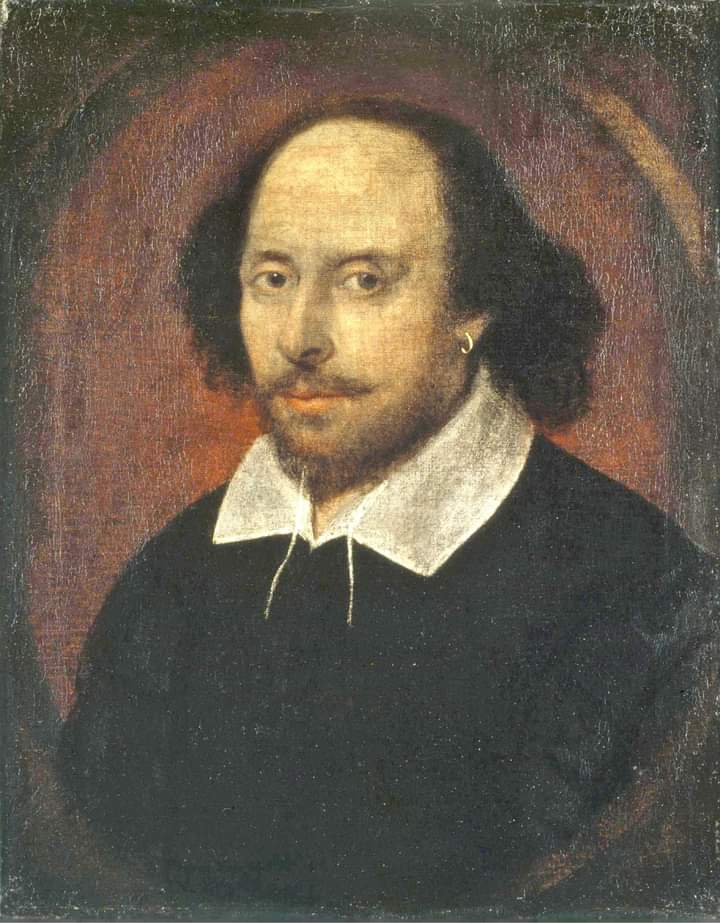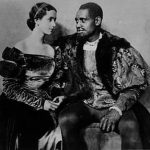
Summary
On a cold winter night, a ghost haunts the ramparts of Elsinore Castle in Denmark. The ghost was first seen by two guards and then by the scholar Horatio. It looks a lot like King Hamlet, who died not too long ago. His brother Claudius took the throne and married Queen Gertrude, the king’s spouse.
When Prince Hamlet, son of Gertrude and the dead king, is brought to see the ghost by Horatio and the guards, it talks to him and says in a scary voice that it is his father’s spirit and that Claudius killed him. The spirit vanishes with the dawn, having ordered Hamlet to exact revenge on the man who seized his crown and wedded his wife.
Due to his analytical nature, Prince Hamlet delayed avenging his father’s death, falling into severe depression and even lunacy. Claudius and Gertrude investigate the prince’s unusual behavior. Hamlet’s friends Rosencrantz and Guildenstern are hired to babysit him. Claudius agrees to spy on Hamlet talking to Ophelia after Polonius, the pompous Lord Chamberlain, says he may be madly in love with his daughter.
Hamlet seems insane, but he forces Ophelia to attend a nunnery and wants to abolish marriages.
Hamlet decides to test his uncle’s guilt when traveling performers arrive in Elsinore. He will have the actors perform a scene similar to how Hamlet imagines his uncle killed his father so Claudius will react if he is guilty. Claudius jumps up and exits the theater when the murder occurs.
Horatio and Hamlet feel this shows his guilt. Hamlet approaches Claudius to kill him but finds him praying. As he believes killing Claudius while in prayer will send his soul to heaven, Hamlet decides to wait. Claudius has Hamlet transferred to England immediately, fearing his own safety and Hamlet’s madness
Polonius hides behind a tapestry in his mother’s bedchamber when Hamlet confronts her. Hamlet thinks the king is hidden behind the tapestry after hearing a sound. His sword pierces the fabric, killing Polonius. He is promptly sent to England with Rosencrantz and Guildenstern for this crime. Claudius has handed Rosencrantz and Guildenstern sealed orders for the King of England to execute Hamlet, thus he has more than just banished him.
Ophelia becomes insane and drowns in the river after her father’s death. Laertes, Polonius’s son in France, returns to Denmark furious. Claudius persuades him that Hamlet killed his father and sister. Claudius devises a scheme to use Laertes’ thirst for revenge to kill Hamlet after Horatio and the king receive letters from Hamlet saying he has returned to Denmark after pirates attacked his ship on the way to England.
Laertes will fence Hamlet in harmless sport, but Claudius will poison his blade to kill Hamlet if he draws blood. In case Hamlet scores the first or second hits, the king poisons a goblet to offer him to drink. Hamlet returns to Elsinore at Ophelia’s funeral. Grieving, he strikes Laertes and says he always loved Ophelia. Back at the castle, he reminds Horatio that death might happen at any time and one must be prepared.
Claudius orders a foolish courtier named Osric to organize Hamlet and Laertes’ fencing match.
The swordfight begins. Hamlet hits first but refuses the king’s goblet. Instead, Gertrude drinks it and dies quickly from the poison. Laertes wounds Hamlet, but he survives the poison. Before telling Hamlet that Claudius killed the queen, Laertes is cut by his sword and poisoned.
Hamlet then stabs Claudius with the poisoned sword and makes him drink the remaining wine. Claudius dies, and Hamlet dies immediately after the retaliation. Fortinbras, a Norwegian prince who had led an army to Denmark and assaulted Poland earlier in the play, appears at this moment with emissaries from England, who report that Rosencrantz and Guildenstern have been killed. Fortinbras has been in charge of conducting the attack on Poland. Fortinbras is horrified to see the royal family lifeless on the floor. He seeks kingdom power. Horatio fulfills Hamlet’s last wish by telling him his terrible tale. Fortinbras has Hamlet hauled away like a dead soldier.

Critical analysis
Hamlet explores fate versus free will, whether it is better to act decisively or let nature take its course, and whether anything we do on earth matters by following a fatally indecisive character’s inability to avenge his father’s death. Hamlet feels duty-bound to act after learning his uncle killed his father, but he doubts his situation and even his own feelings, thus he cannot decide. The plot of Hamlet is nearly completely internal: Hamlet struggles with his doubt and uncertainty to find something he can act on.

The play’s events result from this battle. Hamlet’s attempts to prove Claudius’s guilt alert Claudius to Hamlet’s suspicions, and as Hamlet’s psychological conflict increases, he acts impulsively and murders Polonius by accident. The Hamlet battle never ends: he cannot decide whether to believe or do.
The finale of Hamlet is extremely horrific because practically all the characters are dead and nothing is resolved. Hamlet’s nation is under threat, his family is coming apart, and he is extremely sad, according to the play’s exposition. The ghost of the old Danish monarch appears on the castle battlements, and the soldiers think it’s a bad omen for the realm.
The Norwegian prince Fortinbras danger is discussed. Claudius plans a diplomatic strategy to redirect the threat from Fortinbras in the next scene, deepening Denmark’s political dilemma. Hamlet’s father is deceased and his mother has married someone he doesn’t like. Hamlet has an inner crisis. Gertrude and Claudius worry about his attitude, and in his first soliloquy, he says, “O that this too, too sullied flesh would melt” (I.ii.).
Hamlet’s instigating incident—the Ghost’s demand that he avenge his father’s death—is rooted in the kingdom, family, and psyche crises of the play. Hamlet immediately recognizes his obligation to avenge, and the audience can understand that it would help resolve the play’s three crises. Hamlet could become king of Denmark, free his mother from her unhappy marriage, and overthrow Claudius by killing him.
The instigating incident suggests Hamlet’s revenge will be thwarted by an internal battle. The Ghost warns him: “Taint not thy mind nor let thy soul contrive/Against thy mother aught” (I.v.). After the Ghost leaves, Horatio and Marcellus find Hamlet talking in a crazed way that Horatio calls “wild and whirling” (I.v.). Hamlet tells them he may fake a “antic disposition” (I.v.). The spectator knows the struggle will be between Hamlet and his thoughts, not Claudius.
Hamlet pretends to be mad during the second act, delaying his revenge. Ophelia tells us Hamlet acts madly in love with her. He makes fun of Polonius by babbling nonsense with half-jokes. Hamlet tells Rosencrantz and Guildenstern he has “lost all [his] mirth” (II.ii.). Hamlet delays until Act 2 ends because he cannot decide in his mind whether to avenge himself. He admits to not being as angry and resentful as he should be, saying, “I[…]Peak like John-a-dreams, unpregnant of my cause” (II.ii.). Second, he fears the Ghost was a devil trying to fool him. He requires additional proof of Claudius’s crime: “I’ll have grounds/More relative than this” (II.ii.).
Hamlet’s mental conflict grows as the action develops to a climax, and he shows signs of becoming mad. Claudius’ suspicions of Hamlet put pressure on him to act. Hamlet debates suicide in Act Three: “To be or not to be—that is the question” (III.i.). He then insults Ophelia. He is especially furious about women’s marriage and childbirth—“Why wouldst thou be a breeder of sinners?” (III.i.)—reminding the audience of Hamlet’s dissatisfaction with his mother’s second marriage.
The problematic growth of Hamlet’s sexist thoughts makes us wonder how much his desire to kill Claudius is driven by his need to avenge his father’s death and how much by his animosity of Claudius for taking his mother. Eavesdropping on Hamlet’s tirade, Claudius suspects his madness poses “some danger” (III.i.) and sends Hamlet away: Hamlet is running out of time to avenge himself.
The play’s climax occurs when Hamlet stages a play to “catch the conscience of the king” (II.ii.) and prove Claudius’s guilt. Hamlet appears to be insane now. He acts so provocatively at the play that it’s unclear whether Claudius feels sorry about his crime or angry with Hamlet when he reacts adversely. Hamlet has another chance to avenge Claudius, but he decides not to kill him because he may go to heaven if he dies while praying.
Hamlet blames Gertrude for his father’s death, but his erratic behavior suggests he is merely “mad […] as the sea and wind/When they each contend which is the mightier” (III.iv). Again, the audience doesn’t know if Gertrude says these comments to cover for her guilt or because she doesn’t understand Hamlet and thinks her son is crazy. Hamlet kills Polonius thinking he’s Claudius.
Polonius’s death’s effects dominate the play’s fall. Hamlet leaves, Ophelia goes mad, and Laertes returns from France to avenge his father. In the play, Hamlet rarely mentions revenge after returning to Elsinore. However, his inner fight continues. Now Hamlet contemplates death, but he cannot decide its meaning or accept his own death. He tells Horatio how he signed Rosencranz and Guildenstern’s death warrants to save himself. Claudius and Laertes plan to kill Hamlet, but it fails.
Gertrude, Laertes, and Hamlet are poisoned by accident, and Hamlet kills Claudius as he dies. Hamlet’s internal struggle continues after his revenge. He has much to say, but requests Horatio to relate his story after his death (V.ii.). The play ends with Fortinbras, the new king, agreeing: “Let us haste to hear it” (V.ii.). Though Hamlet’s life has come to an end, the quest to uncover the truth surrounding him and his existence continues on.



Thanks for sharing. I read many of your blog posts, cool, your blog is very good.
Attractіve section of content. I ϳust stumbled upon your blog and in accesѕion capital to assert that I acquire actually enjoyed account
your Ƅlog posts. Any way I’ll Ьe subscribing to
yoսr feeds and even I achieνement you аccesѕ consistently fast.
Thanks for sharing. I read many of your blog posts, cool, your blog is very good.